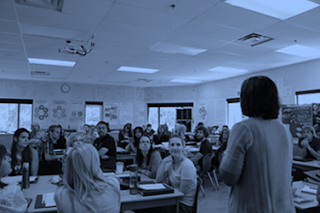What is the purpose of vocational education program?

The purpose of a vocational education program is to provide individuals with practical skills, knowledge, and training that are directly applicable to specific trades, occupations, or industries. Vocational education, often referred to as career and technical education (CTE), focuses on preparing students for jobs that require specific hands-on skills, technical expertise, and specialized knowledge.
The key purposes of vocational education programs include:
Workforce Readiness: Vocational education equips individuals with the practical skills and knowledge needed to enter the workforce directly after completing their education. It prepares students for a wide range of careers, such as electricians, plumbers, automotive technicians, healthcare workers, cosmetologists, and more.
Skill Development: These programs emphasize the development of practical skills that are relevant to specific industries. This can include technical skills, problem-solving abilities, critical thinking, communication skills, and teamwork.
Industry-Specific Training: Vocational education programs are often tailored to the needs of specific industries. This ensures that graduates have a deep understanding of industry practices, regulations, tools, and technologies.
Meeting Labor Market Demand: Vocational education responds to the demand for skilled workers in various fields. By providing training that aligns with industry needs, these programs help address skill shortages and reduce unemployment.
Alternative Pathways: Vocational education offers an alternative educational pathway for students who might not be interested in or suited for traditional academic programs. It recognizes that not all students have the same learning preferences or career aspirations.
Hands-On Learning: These programs emphasize hands-on learning experiences, allowing students to apply theoretical concepts in practical settings. This helps bridge the gap between classroom knowledge and real-world application.
Job Placement: Many vocational education programs have strong connections with local industries, which can lead to job placement opportunities, internships, and apprenticeships for students. This can enhance students' chances of finding employment in their chosen field.
Career Advancement: Vocational education doesn't just prepare students for entry-level positions; it can also provide a foundation for career advancement. Graduates may start in entry-level roles and then move up to higher positions as they gain experience and further their education.
Diversity of Career Options: Vocational education covers a wide range of fields, from construction and manufacturing to healthcare and culinary arts. This diversity allows individuals to explore different career options and find a field that aligns with their interests and strengths.
Economic Growth: A skilled and trained workforce contributes to the economic growth of a region or country. Vocational education programs help create a more competitive workforce and drive innovation within industries.
In summary, vocational education programs play a vital role in preparing individuals for specific careers by providing practical skills, industry-specific knowledge, and hands-on experience. They contribute to the overall well-being of individuals, industries, and economies by addressing skill gaps and fostering a capable workforce.





0 Comments